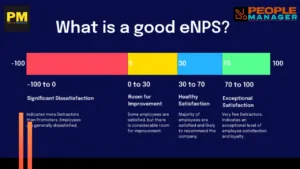Personal smartphone use at work reduces stress levels: Study Report
The study emphasizes the possible advantages of moderate smartphone use at work. It does, however, imply that employee performance is not greatly impacted by such usage.

Personal smartphone use at work reduces stress levels. The study, led by Professor Eoin Whelan of the J.E. Cairnes School of Business, found a solution.
More than 60% of members of the working class reported feeling stressed out at work in a previous poll. It is a sign of a heavy workload, poor work-life balance, etc. However, a recent study found that stress levels are lowered while using a personal smartphone at work.
In actuality, most of us now consider our cellphones to be an essential part of our everyday lives, often being utilized on slower workdays or during lunch breaks. On the other hand, a new study highlights the benefits of utilizing smartphones at work. Employees who use their smartphones for personal purposes at work report feeling less stressed and having a better work-life balance.
The study, led by Professor Eoin Whelan of the J.E. Cairnes School of Business and Economics at the University of Galway, demonstrates the possible benefits of modest smartphone use at work. Surprisingly, it shows no discernible effect on worker performance.
A pharmaceutical company first outlawed personal phone use in the 1990s because of safety concerns, particularly with regard to potential distractions when handling potentially dangerous chemicals. Employees, however, voiced displeasure with the ban and a sense of being cut off from the outside world.
Furthermore, senior management felt that the branch’s competitiveness against other branches within the corporation was impacted by this restriction, which depicted the branch as technophobic. Senior management was the only group initially permitted to bring personal phones to work.
For a duration of one year, the study involved the observation of roughly forty employees using their personal smartphones in accordance with the new relaxed policy. An equal number of employees, meanwhile, self-imposed a prohibition and stopped using their phones while at work.
Qualitative interviews provided valuable insights. The study’s key findings include:
- Despite worries about distraction, work performance did not decline after the smartphone ban was lifted.
- Workers who had access to a phone reported far less perceived conflict between work and personal life.
- Employees who had access to phones were able to support their partners during the day by helping with family concerns.
- Employees were able to better manage their messages and avoid post-work overwhelm by spacing out their personal conversations throughout the day.
This study concentrated on personal communications within the office, whereas earlier research examined communications connected to business outside the workplace. The colleges involved view these results as revolutionary, providing organizations seeking to provide a healthy work environment with useful information.
Instead of imposing a ban, lead researcher Prof. Whelan recommends setting clear expectations for smartphone use in the workplace. This entails establishing ground rules, including forbidding cell phone use in meetings or the cafeteria, and having staff members keep an eye on compliance. Supervisors need to be aware of the unforeseen repercussions of banning smartphones.
Value our content… contribute towards our growth. Even a small contribution per month would be of great help to us. Since our establishment, we have been serving the industry through daily news and updates.
Our content is free for all, and we plan to keep it that way
Support the People Manager. Pay Here (All it takes is a minute)
- Delhi Revises Minimum Wages: Sets National Benchmark with Top Rates for Unskilled Workers - April 16, 2025
- A.P Govt exempts IT and ITES Establishments from Certain Provisions of the AP Shops Act - April 8, 2025
- EPFO Eases Claim Settlement Removes Cheque Upload & Employer Approval For Bank Seeding - April 4, 2025








